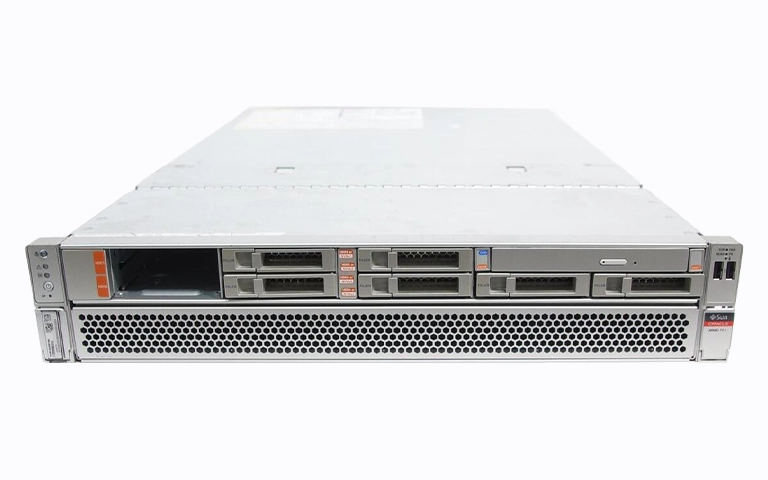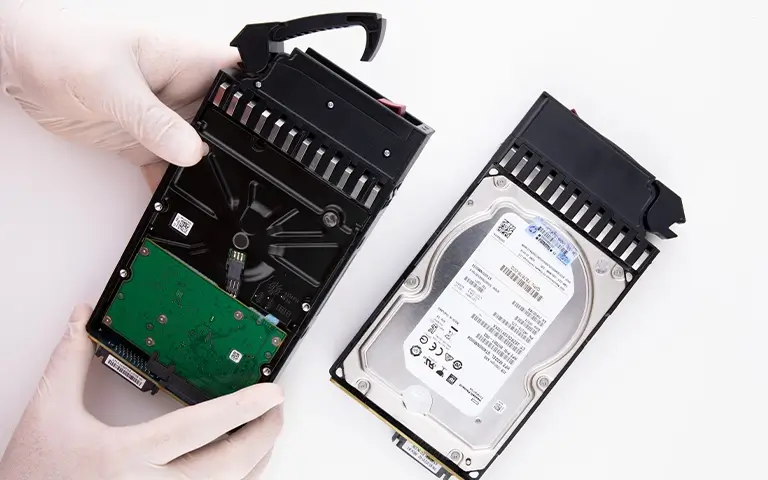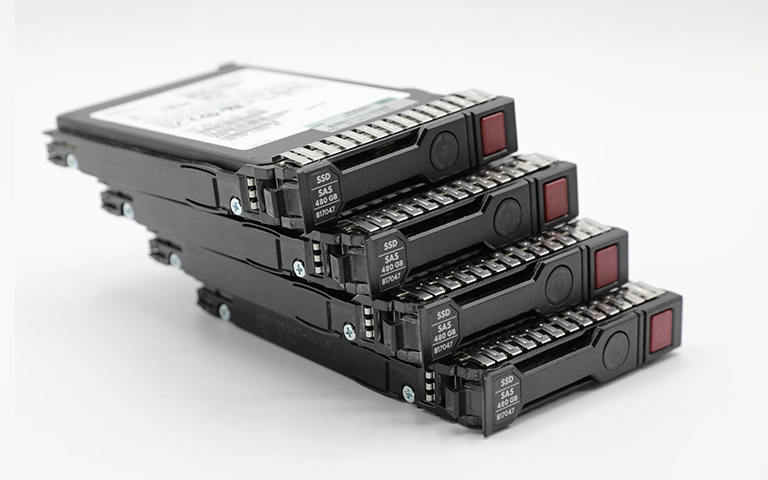Data drives every decision, transaction, and operation within a business. From financial records and project files to client databases, companies depend on uninterrupted access to digital information.
When a server crashes, a RAID array fails, or malware locks critical files, operations can come to a standstill within seconds. The loss affects productivity, customer trust, and profitability.
In today’s data-centric environment, the ability to recover quickly from such failures defines business resilience.
This post explains how professional business data recovery protects organizations from costly downtime and permanent data loss. You will also learn how recovery specialists diagnose failures, rebuild complex systems, and restore vital information to keep your company running smoothly.

Common Causes of Business Data Loss
Data loss can occur in any organization, regardless of size or industry. Understanding the most common causes helps businesses identify early warning signs and take action before damage spreads.
Here are some of the main reasons companies experience data loss:
Hardware failure: Hard drives, SSDs, or RAID controllers can fail due to age, overheating, or manufacturing defects.
RAID degradation: When one or more drives in a RAID array fail or fall out of sync, access to data becomes unstable or completely lost.
Accidental deletion: Human error remains one of the top causes of missing business files or overwritten data.
Cyberattacks and ransomware: Malicious encryption and data theft can cripple entire systems, locking essential files until a ransom is paid. Learn more about secure recovery methods in our ransomware recovery guide.
Power interruptions: Sudden outages or surges can damage controllers, corrupt file systems, or cause incomplete writes.
Software corruption: Operating system errors and failed updates may leave entire drives or partitions unreadable.
Recognizing these threats early and responding correctly can significantly reduce downtime and data loss severity.
How Data Loss Impacts Business Operations
When a company loses access to critical data, the consequences can ripple across every department. Productivity stalls, communication breaks down, and essential business functions slow to a crawl.
For organizations that rely on continuous operations, even a few hours of downtime can result in lost contracts and unhappy clients.
Financial loss is often immediate. Employees may be unable to complete daily tasks, while recovery efforts demand additional resources and time.
In some industries, data loss also leads to compliance violations and potential legal penalties if sensitive information becomes compromised.
Beyond the operational and financial damage, data loss can harm a company’s reputation. Customers expect reliability and security, and any sign of vulnerability can reduce trust. This makes it essential for businesses to have recovery strategies and partnerships in place before disaster strikes.

Why Businesses Use RAID and Enterprise Storage
Most organizations rely on RAID systems and enterprise hard drives to store and protect critical information. These configurations are designed to improve performance, enhance fault tolerance, and ensure continuous access to data, even if one drive fails. RAID distributes data across multiple disks, creating redundancy that helps businesses maintain operations during hardware issues.
Enterprise-grade drives also play a major role in business environments. They are engineered for constant workloads, providing stability and endurance under demanding conditions.
However, like all hardware, they can still experience degradation, firmware issues, or synchronization errors over time.
Learn more about their characteristics in our article on enterprise hard drives.
Despite their reliability, RAID systems are not immune to failure. Controller malfunctions, incorrect rebuilds, or simultaneous drive failures can result in severe data loss.
You can explore more about these issues in our post on reasons for RAID data loss.
When such failures occur, specialized recovery engineers use advanced diagnostics to reconstruct the array, extract the data safely, and restore system functionality. This professional approach helps businesses avoid further complications during the recovery process.

Professional Recovery Process Explained
When data loss strikes, a structured and secure recovery process is essential to protect business information and prevent further damage. Below is how professionals handle business data recovery step by step:
Engineers begin by examining the system to determine the failure type, whether logical, physical, or a combination of both. This step ensures no additional harm occurs during recovery.
A sector-by-sector clone of each drive is created to preserve the original data. All recovery operations are performed on these copies to maintain data integrity.
If the system involves a RAID setup, specialists identify the correct drive order, stripe size, and parity configuration. This allows them to rebuild the array structure accurately.
Once the RAID or storage system is rebuilt, recovered files are carefully extracted and verified to ensure completeness and accuracy.
The restored data is transferred to a new, encrypted storage device and returned to the client using strict security protocols.
At RAID Recovery Services, our engineers handle complex RAID, NAS, and server environments daily. We follow a precise workflow that guarantees the highest recovery success rates while keeping sensitive business information confidential.

Preventing Future Data Loss
Preventing data loss is as important as recovering it. Businesses that take proactive steps to secure their information can minimize downtime and avoid costly disruptions. Here are some effective strategies to strengthen your company’s data protection efforts:
Implement regular backups: Schedule automated backups to multiple locations, including both onsite and offsite storage.
Monitor hardware health: Use diagnostic tools to track disk performance and detect early signs of drive degradation.
Maintain RAID systems properly: Ensure periodic rebuilds and firmware updates are performed by trained professionals to prevent synchronization issues.
Enhance cybersecurity: Deploy updated antivirus software, firewalls, and employee awareness programs to prevent ransomware and phishing attacks.
Use an uninterruptible power supply (UPS): Protect servers and storage devices from sudden power interruptions or surges.
For more detailed steps on safeguarding critical business information, visit our guide on data loss prevention.
Establishing a well-structured backup and maintenance routine allows organizations to recover faster, maintain operational stability, and reduce the likelihood of data-related emergencies.
Fast turnaround times for business-critical data
Why Choose RAID Recovery Services
When your business faces data loss, choosing the right recovery partner can make all the difference.
At RAID Recovery Services, we specialize in restoring data from complex enterprise systems, including RAID arrays, servers, and NAS devices. Our engineers work with precision to rebuild damaged configurations and retrieve critical files without risking further corruption.
We operate in controlled environments equipped with certified cleanrooms to ensure every recovery is performed under the highest technical standards. Each case is handled confidentially, and every recovered file undergoes verification to confirm accuracy before delivery.
Businesses across various industries rely on us because we combine advanced technology with years of experience in corporate data recovery.
Whether your company is facing a server crash, RAID failure, or corrupted storage system, our team is ready to help you recover fast and safely.

Conclusion
Data loss can happen to any business, regardless of its size or infrastructure. From hardware failures and cyberattacks to human errors, the risk is always present.
What matters most is how your company responds when it occurs. Acting quickly and relying on professional recovery specialists ensures your valuable information is restored safely and efficiently.
With expert support from RAID Recovery Services, your business can recover from unexpected failures while maintaining continuity and trust. Our engineers understand the urgency of corporate data loss and are committed to providing fast, secure, and reliable recovery results.
Ready to recover your business data? Speak with our specialists today to schedule an evaluation and get your systems back online with confidence.
Trust the experts with proven results
Frequently Asked Questions
What is business data recovery?
Business data recovery is the process of restoring lost, corrupted, or inaccessible files from enterprise systems such as servers, RAID arrays, or NAS devices. It focuses on minimizing downtime and ensuring business continuity by safely retrieving critical information.
What are the main causes of data loss in businesses?
Common causes include hardware or RAID failure, accidental deletion, ransomware attacks, and software corruption. Environmental factors such as power surges or overheating can also lead to data loss.
Can data be recovered from a failed RAID or server?
Yes. In most cases, data from failed RAID arrays and servers can be recovered by professionals. Our engineers at RAID Recovery Services use specialized tools to rebuild configurations and extract files without causing further damage.
How long does the recovery process take?
Recovery time depends on the system type, failure severity, and data volume. After diagnostics, our team provides an estimated timeframe and keeps you informed throughout the recovery process.
How can my business prevent future data loss?
Maintain routine backups, monitor drive health, and perform scheduled maintenance. Implement cybersecurity measures and power protection systems to reduce the risk of hardware damage and attacks.